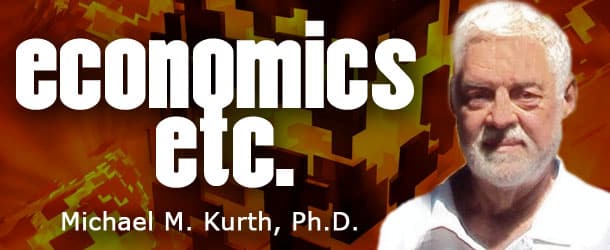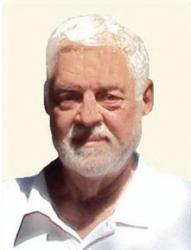For the past month, most Americans have been outraged over the beheadings of two U.S. citizens — James Foley and Steven Sokoloff — by ISIL (AKA the Islamic State). Americans wanted our president to express the nation’s outrage and take decisive action to punish those who perpetrated these horrific acts. But the president appeared to be disinterested and detached.
A week after the beheading of James Foley, President Obama interrupted his three-week vacation in Martha’s Vineyard to express his condolences to the Foley family and to condemn ISIL, saying it follows a “bankrupt ideology” and has “no place in the 21st century.” But his sincerity evaporated when he quickly headed back to the golf course, where he was photographed smiling and laughing with his friend, former professional basketball star Alonzo Mourning. The president himself admitted on Meet the Press that the “optics” were bad.
Obama’s actions were in sharp contrast to those of British Prime Minister David Cameron, who broke off his vacation after just one day and returned to London to denounce Foley’s murder when it appeared his executioner was a British citizen, and to announce emergency actions to protect Britain from ISIL terrorist attacks.
Even liberal Democrats such as Dianne Feinstein were critical of Obama for being too cautious.
A few days later, the president got a “do-over” — an opportunity to correct his poor “optics” and the confusion he created by stating “we don’t have a strategy yet” when he was asked about going after ISIL strongholds in Syria, and when he told the Europeans his goal was not to destroy ISIL, but to shrink its sphere of influence to the point that it is “a manageable problem.” On the eve of 9/11, he addressed the nation to outline his plan of action for dealing with the Islamic State.
This was Obama’s opportunity to be the strong decisive leader many Americans want when they feel threatened. This could have been his Winston Churchill “we shall fight on the beaches” moment or his Ronald Reagan “Mr. Gorbachev, tear down this wall!” moment. But if Ronald Reagan was the great communicator, Barak Obama is the great obfuscator.
How did he frame the danger for us? “Now let’s make two things clear,” he declared, “ISIL is not ‘Islamic’” … and it “is certainly not a state … It has no vision other than the slaughter of all who stand in its way.” We are still debating what those words mean.
How about outlining a strategy for dealing with ISIL? The president told us “additional U.S. action depend[s] upon Iraqis forming an inclusive government.” Hmm. Are we talking about nation-building, installing democracy or maybe bringing back Saddam Hussein from his grave?
He then went on to say “America will lead a broad coalition to roll back this terrorist threat.” Ah ha! We have some allies: we have, um, let’s see, well, there is always David Cameron. But no, he said he is not sending any troops.
“Our objective is clear,” the president declared. “We will degrade, and ultimately destroy, ISIL through a comprehensive and sustained counter-terrorism strategy.” OK, great! We finally have a strategy. What is it?
The president outlined four steps to his strategy: First we will bomb the terrorists, then the army of the new inclusive government in Iraq will go on the offensive, and then somebody will hunt down the ISIL terrorists in Syria.
Second, he will send 475 soldiers to Iraq to advise loyal Iraqi commanders about how to fight ISIL, since ISIL now has the weapons we gave the Iraqi army when he pulled out our troops. But our soldiers won’t engage in combat. (Advice doesn’t count as “boots on the ground.”)
So who is going to hunt down the terrorists in Syria? The plan is to arm the democratic opposition in Syria “while pursuing the political solution necessary to solve Syria’s crisis once and for all.” (Did he tell Russia and Iran about this part of his plan?)
Third, the TSA will protect the U.S. homeland from terrorist attacks. They have been doing such a great job. And Obama is going to personally “chair a meeting of the U.N. Security Council to further mobilize the international community around this effort.”
So who is on the UN Security Council? Russia and China are both permanent members with veto power (but I am sure they will get behind us on this). And then there are temporary members, like Chad, Lithuania, Luxembourg and Rwanda. That should put fear into ISIL.
“Fourth,” the president declared, “we will continue to provide humanitarian assistance to innocent civilians who have been displaced by this terrorist organization.”
I am not criticizing Obama for not leading us into war. I’ve been a harsh critic of U.S. interventionism, and in my last Lagniappe column, I urged restraint, because too often our actions have created blow-back with unintended consequences that serve to strengthen our enemies.
But the nation, and for that matter the world, needs clarity, resolve, and leadership from the U.S., and that’s not what I heard in the president’s speech.
What I heard was someone who was trying to appear firm and decisive, but was carefully choosing his words to obscure what he was really saying and being willfully ambiguous. The proof of his obfuscation is that we are still trying to figure out what he really meant.














Comments are closed.